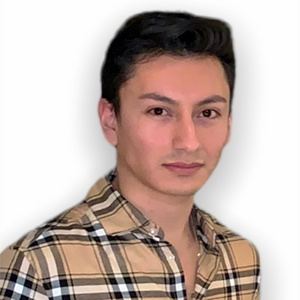Somos Latinx Lideres (SoLL)

Mission
Somos Latinx Lideres (SoLL) at Northwestern’s Feinberg School of Medicine is an affinity group that aims to provide a space to discuss topics related to Latinx research, networking, and to enhance career development. This organization is open to all staff in the Feinberg School of Medicine community. SoLL’s goals are to enhance the work environment by:
- Hosting monthly events
- Creating networking opportunities through events
- Collaborating with other units across Northwestern University
Newsletter
Interested in learning more about our affinity group? To subscribe to our quarterly newsletter send an email to SoLL.
We want to highlight the work of Latinx faculty and students in higher education. If you know someone that may be interested, please submit nominations online.
Board Members
Our board members include Northwestern staff from several units, such as:
- The Institute for Sexual and Gender Minority Health and Wellbeing (ISGMH)
- Department of Medical Social Sciences (MSS)
- The Institute for Public Health and Medicine (IPHAM)
- Department of Preventive Medicine
- The Cancer Center
Andrés Alvarado Avila
 Andrés Alvarado Avila
Andrés Alvarado Avila, BA, (he/him) is a research study coordinator for the SMART and RADAR studies at ISGMH. He is also the founder and co-chair of Somos Latinx Lideres. Andrés has experience working for various research projects that aim to address mental and physical health inequities. His research interest include documenting and addressing health inequities in Latinx and Black communities in the United States through research that informs clinical practice, interventions, and policy. Outside of Northwestern, Andrés serves as a board member for the Chicago Education Advocacy Cooperative, a non-profit dedicated to helping underrepresented students navigate academia.
Eloisa Serrano
Eloisa Serrano is a PhD student in Clinical Psychology at Northwestern. Her lab, the Griffith Lab, is housed within the Department of Medical Social Sciences. As a Southside Chicago native with previous work experience at non-profits, she had exposure to the many health inequities affecting urban areas like Chicago. She realized that as a Latina clinician and researcher, she will have the opportunity to include more people in the shaping of research and use clinical therapy to address mental health needs of Latinx populations. She is currently also completing clinical work in the VA system helping veterans coping with chronic health issues and trauma. Her goal is to help break down the cultural stigma of seeking mental health support in minority communities. Her lab research focuses on health literacy, assessment, treatment of anxiety and depression, and community mental health care. Along with her current research, she is also interested in intergenerational trauma, issues affecting first-generation students, women’s health issues, correctional health, and community violence. When she’s not in the lab, Eloisa spends her time cooking, trying delicious coffee throughout the city (hello, cold brew & café de olla), and making homemade treats for her pups.
Monica Estrada
Monica Estrada is a research study coordinator at Northwestern University’s Feinberg School of Medicine. Her passions lie in psychological research, mental health education, the intentional dissemination of mental health resources for marginalized populations, and the use of evidence-based practices. Outside of work, she is the Midwestern Regional Ambassador for Therapy4thePeople, a non-profit dedicated to increasing the accessibility of mental health services to people of color and individuals struggling to find affordable services. In her free time, she enjoys learning how to bake breads from different cultures, cook new recipes, and spending time with her nieces and nephew.

